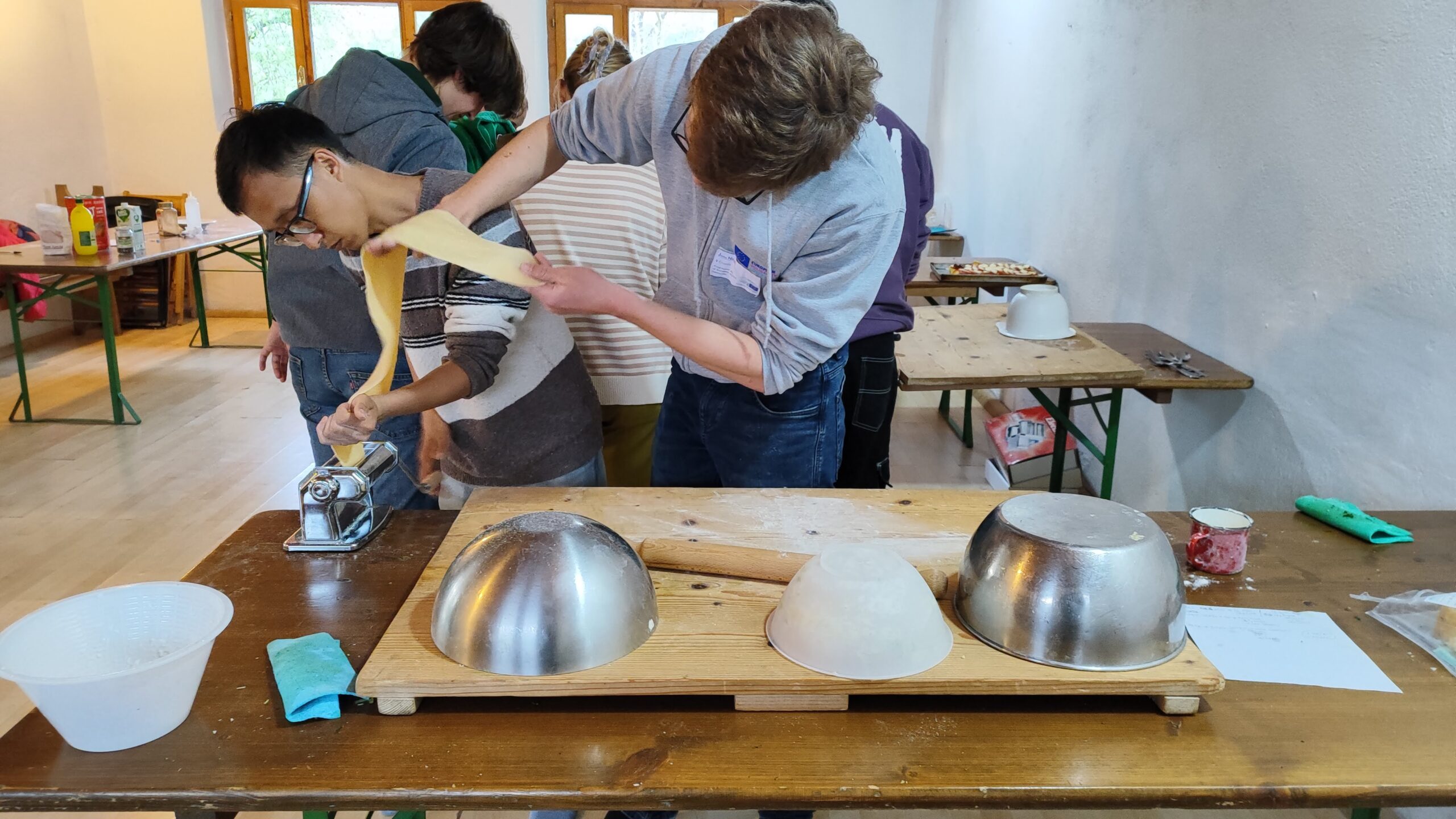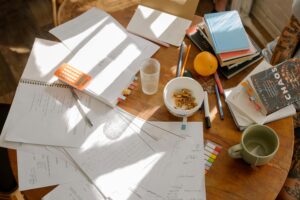This interview refers to the Masterchef activity which can be found in our Good Practices section.
GOOD PRACTICE OVERVIEW, CHALLENGES AND OPPORTUNITIES
What were the original goals and objectives of this practice/activity?
We always implemented the Master Chef activity in the context of longer periods of activities, over some days. The topic was the impact of food and the environment, and once participants reached this activity, they went through two processes. On one side, the theoretical part, this is, that they’ve already had time to discuss what’s the impact of the food and environment, which raises their knowledge. On the other side, the practical, by checking how much impact related to the carbon footprint their traditional recipes have.
At this point, they are ready for the Master Chef, which is an activity that has the goal to put into practice what participants have learnt and do it while having fun. So, basically, the objectives of this activity are bonding over a practical activity like cooking, which always creates an informal moment to talk and to share both knowledge, and skills, but also personal things.
Another objective is to challenge yourself in creating a sustainable recipe with a few ingredients after knowing what the impact of each ingredient is. So, the challenge is to create something that is tasty, but it’s also environmentally sustainable. The strategy that the group of participants choose during this activity plays also a role because they have a first step of the activity where they, let’s say, ‘fight’ more or less for the ingredients with the other groups. So it’s not taken for granted that they can access all the ingredients. That’s why according to what other groups choose, they will have to choose their own ingredients, which creates a small competition that is a good point for many people to get the boost of motivation and to put into practice more effectively what they learn.
What was found to be particularly useful in achieving this practice objectives (methods, approaches)?
The cooking method is proven, from our experience and from the outcome that has on the participants, very useful in achieving objectives like getting knowledge and at the same time sharing it with others. So surely cooking together is a great tool to share skills and competencies. The MasterChef also is an activity that is, on one side, fun, but also pressing.
There’s something that puts a bit of pressure on participants, which is the jury. The jury is the facilitation team who have different roles in this activity. For sure, they support participants during the activity, but they also play the role of jury which puts a bit of spice in the competition and this competition, as mentioned, pushes a bit participants to do their best.
In the end, there is no real prize. This is also an important part of the activity, because it’s not a real competition, in a way that at the end with the debriefing of the activity, we make everyone understand that it was not about the competition. The competition was just a moment, a phase of the activity for the participants to get more energy and encourage them to do things that they never did.
So the idea is that there is room for everyone: for the ones that react well to the competition, but also for the ones that don’t feel good under pressure. We have similar activities without competition and sometimes this leads to low involvement and and low participation from participants. That’s maybe because their motivation is a bit loose, let’s say, low. And if they don’t have competition then they lose interest. So, with this method, even if their motivation is not the best, once there is a bit of a small competition, they find another motivation to play a role, and they find the role within the team.
What did students like the most about this practice?
This activity worked quite well every time we implemented it. The students and participants like a lot to do such a practical activity, which is directly connected with a lot of concepts that we hear every day like sustainable choices related to food, or sustainable practices. They usually have a lot of fun while cooking and also have a lot of fun while presenting what they cooked to the juries because they are very proud of it.
This creates a very unique moment because participants feel that they are a team, which is something meaningful.
What were the key problems areas of this practice?
Regarding the weaknesses of this activity, of course, is that it’s not replicable everywhere and at any time. It requires quite a lot of tools and cooking areas, according to the number of people that are involved. Also, as mentioned already, people who don’t really like or react well to competition can feel a bit frustrated but, by knowing the profiles of the participants, the facilitation team can support this process in a way that everyone is included.
How can these elements be improved in the future?
Something that can be done to improve the activity could be to reduce the amount of ingredients and tools that participants can use. In this way, it might be more challenging, but it might be more replicable in smaller groups and in different areas.
Another thing that can be improved is to find a good compromise between the stress of a competition and avoid worsening participants’ moods when it’s not a competition at all. We still didn’t find a good midway.
Is this practice replicable by other teachers in different countries? What factors should be considered while replicating this practice?
The activity is replicable. Definitely, it requires some organization for tools as already mentioned, but it’s something that, once the ingredients and tools are there, participants are doing the activity by themselves and they just need to be overviewed, someone needs to overview the process and keep track of the time. But the activity is very easy to explain because everyone has an understanding of where the Master Chef competition comes from. This creates a lot of good motivational vibes among the group.
What was the most inspiring aspect for you while implementing this practice?
Every time we do this activity, we get very surprised by the creativity of participants because we see all the time very creative, very different, very unique, cooking choices, plates, and meals that participants come up it.
Also, the calculation of the impact of their plate and environment is an important moment. It’s very surprising how much participants can do with removing all the high-impact ingredients, so that’s always a great surprise.
And I think the most important thing is that participants, after having fun, will remember this for a long time. Once they are home cooking on their own, they will remember these moments and cooking will be perceived by them as something more achievable, more doable, and they probably replicate some of the recipes that they learnt or just tasted during during this activity.







